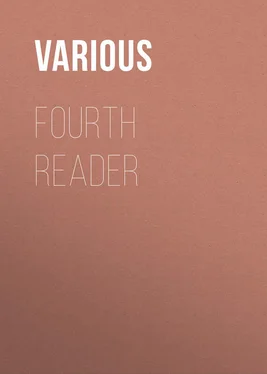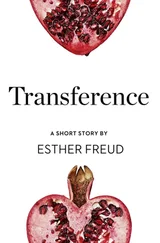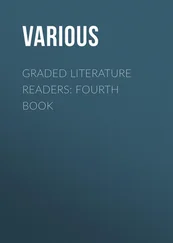Various - Fourth Reader
Здесь есть возможность читать онлайн «Various - Fourth Reader» — ознакомительный отрывок электронной книги совершенно бесплатно, а после прочтения отрывка купить полную версию. В некоторых случаях можно слушать аудио, скачать через торрент в формате fb2 и присутствует краткое содержание. Жанр: foreign_prose, на английском языке. Описание произведения, (предисловие) а так же отзывы посетителей доступны на портале библиотеки ЛибКат.
- Название:Fourth Reader
- Автор:
- Жанр:
- Год:неизвестен
- ISBN:нет данных
- Рейтинг книги:5 / 5. Голосов: 1
-
Избранное:Добавить в избранное
- Отзывы:
-
Ваша оценка:
- 100
- 1
- 2
- 3
- 4
- 5
Fourth Reader: краткое содержание, описание и аннотация
Предлагаем к чтению аннотацию, описание, краткое содержание или предисловие (зависит от того, что написал сам автор книги «Fourth Reader»). Если вы не нашли необходимую информацию о книге — напишите в комментариях, мы постараемся отыскать её.
Fourth Reader — читать онлайн ознакомительный отрывок
Ниже представлен текст книги, разбитый по страницам. Система сохранения места последней прочитанной страницы, позволяет с удобством читать онлайн бесплатно книгу «Fourth Reader», без необходимости каждый раз заново искать на чём Вы остановились. Поставьте закладку, и сможете в любой момент перейти на страницу, на которой закончили чтение.
Интервал:
Закладка:
King Alfred died in the year 901; but as long ago as that is, his fame, and the love and gratitude with which his subjects regarded him, are freshly remembered to the present hour. – Charles Dickens.
A SONG
There is ever a song somewhere, my dear,
There is ever a something sings alway:
There’s the song of the lark when the skies are clear,
And the song of the thrush when the skies are gray.
The sunshine showers across the grain,
And the bluebird trills in the orchard tree;
And in and out, when the eaves drip rain,
The swallows are twittering carelessly.
There is ever a song somewhere, my dear,
Be the skies above or dark or fair;
There is ever a song that our hearts may hear —
There is ever a song somewhere, my dear —
There is ever a song somewhere!
There is ever a song somewhere, my dear,
In the midnight black or the midday blue:
The robin pipes when the sun is here,
And the cricket chirrups the whole night through;
The buds may blow and the fruit may grow,
And the autumn leaves drop crisp and sere:
But whether the sun or the rain or the snow,
There is ever a song somewhere, my dear.
BETTER THAN GOLD
Better than grandeur, better than gold,
Than rank and title a thousand fold,
Is a healthy body, a mind at ease,
And simple pleasures that always please;
A heart that can feel for a neighbor’s woe,
And share his joys with a genial glow;
With sympathies large enough to enfold
All men as brothers, is better than gold.
Better than gold is a thinking mind,
That in the realm of books can find
A treasure surpassing Australian ore,
And live with the great and good of yore: —
The sage’s lore and the poet’s lay,
The glories of empires passed away.
The world’s great dream will thus unfold
And yield a pleasure better than gold.
Better than gold is a peaceful home,
Where all the fireside charities come, —
The shrine of love and the haven of life,
Hallowed by mother, or sister, or wife.
However humble the home may be,
Or tried with sorrow by Heaven’s decree,
The blessings that never were bought or sold
And centre there, are better than gold.
THE TIGER, THE BRAHMAN, AND THE JACKAL
Once upon a time a tiger was caught in a trap. He tried in vain to get out through the bars, and rolled and bit with rage and grief when he failed.
By chance a poor Brahman came by. “Let me out of this cage, O pious one!” cried the tiger.
“Nay, nay, my friend,” replied the Brahman, mildly. “You would probably eat me up if I did.”
“Not at all!” declared the tiger, with many vows; “on the contrary, I should be forever grateful, and would serve you as a slave!”
Now, when the tiger sobbed and sighed and wept, the pious Brahman’s heart softened, and at last he consented to open the door of the cage. At once, out sprang the tiger, and seizing the poor man, cried: —
“What a fool you are! What is to prevent my eating you now? After being cooped up so long I am terribly hungry.”
In vain the Brahman pleaded for his life. All that he could gain was a promise from the tiger to abide by the decision of the first three things that he chose to question concerning the tiger’s action.
So the Brahman first asked a tree what it thought of the matter, but the tree replied coldly: —
“What have you to complain about? Don’t I give shade and shelter to all who pass by, and don’t they in return tear down my branches and pull off my leaves to feed their cattle? Don’t complain, but be a man!”
Then the Brahman, sad at heart, went further afield till he saw a buffalo turning a water-wheel. He laid his case before it, but he got no comfort, for the buffalo answered: —
“You are a fool to expect gratitude! Look at me! Do you not see how hard I work? While I was young and strong they fed me on the best of food, but now when I am old and feeble they yoke me here, and give me only the coarsest fodder to eat!”
The Brahman, still more sad, asked the road to give him its opinion of the tiger’s conduct.
“My dear sir,” said the road, “how foolish you are to expect anything else! Here am I, useful to everybody, yet all, rich and poor, great and small, trample on me as they go past, giving me nothing but the ashes of their pipes and the husks of their grain!”
On hearing this the Brahman turned back sorrowfully. On his way he met a jackal, who called out: —
“Why, what’s the matter, Mr. Brahman? You look as miserable as a fish out of water!”
Then the Brahman told him all that had occurred.
“How very confusing!” said the jackal, when the recital was ended; “will you tell it over again, for everything has got mixed up in my mind?”
The Brahman told his story all over again, but the jackal shook his head in a distracted sort of way, and still could not understand.
“It’s very odd,” said he, sadly, “but it all seems to go in at one ear and out the other! Take me to the place where it all happened, and then, perhaps, I shall be able to understand it.”
So the cunning jackal and the poor Brahman returned to the cage, and there was the tiger waiting for his victim, and sharpening his teeth and claws.
“You’ve been away a long time!” growled the savage beast, “but now let us begin our dinner.”
“ Our dinner!” thought the wretched Brahman, as his knees knocked together with fright; “what a delicate way he has of putting it!”
“Give me five minutes, my lord!” he pleaded, “in order that I may explain matters to the jackal here, who is somewhat slow in his wits.”
The tiger consented, and the Brahman began the whole story over again, not missing a single detail, and spinning as long a yarn as possible.
“Oh, my poor brain! Oh, my poor brain!” cried the jackal, wringing its paws and scratching its head. “Let me see, how did it all begin? You were in the cage, and the tiger came walking by – ”?
“Pooh! Not at all!” interrupted the tiger. “What a fool you are! I was in the cage.”
“Yes, of course!” cried the jackal, pretending to tremble with fright. “Yes! I was in the cage – no, I wasn’t – dear! dear! where are my wits? Let me see – the tiger was in the Brahman, and the cage came walking by. No, no, that’s not it, either! Well, don’t mind me, but begin your dinner, my lord, for I shall never understand it!”
“Yes, you shall !” returned the tiger, in a rage at the jackal’s stupidity; “I’ll make you understand! Look here. I am the tiger – ”
“Yes, my lord!”
“And that is the Brahman – ”
“Yes, my lord!”
“And that is the cage – ”
“Yes, my lord!”
“And I was in the cage – do you understand?”
“Yes, but please, my lord, how did you get in?”
“How did I get in! Why, in the usual way, of course!” cried the tiger, impatiently.
“O dear me! my head is beginning to whirl again! Please don’t be angry, my lord, but what is the usual way?”
At this the tiger lost all patience, and, jumping into the cage, cried, “This way! Now do you understand how it was?”
“Perfectly!” grinned the jackal, as he instantly shut the door; “and if you will permit me to say so, I think matters will remain as they were!” – Joseph Jacobs.
From “Indian Fairy Tales,” by permission of the author.A CANADIAN BOAT-SONG
Интервал:
Закладка:
Похожие книги на «Fourth Reader»
Представляем Вашему вниманию похожие книги на «Fourth Reader» списком для выбора. Мы отобрали схожую по названию и смыслу литературу в надежде предоставить читателям больше вариантов отыскать новые, интересные, ещё непрочитанные произведения.
Обсуждение, отзывы о книге «Fourth Reader» и просто собственные мнения читателей. Оставьте ваши комментарии, напишите, что Вы думаете о произведении, его смысле или главных героях. Укажите что конкретно понравилось, а что нет, и почему Вы так считаете.




![Various Various - Selected List of Nimmo, Hay, & Mitchell's Publications [1890]](/books/571841/various-various-selected-list-of-nimmo-hay-mit-thumb.webp)






